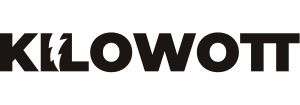Understanding the world of blockchain
Blockchain is transforming how people live and work around the world, but it is merely a means to a goal, not the end itself. We can assist you in putting this technology to work for you in the future.
What is Blockchain?
A blockchain is a distributed database that is shared among the nodes of a computer network. As a database, a blockchain stores information electronically in digital format. Blockchains are best known for their crucial role in cryptocurrency systems, such as Bitcoin, for maintaining a secure and decentralized record of transactions. The innovation with a blockchain is that it guarantees the fidelity and security of a record of data and generates trust without the need for a trusted third party.
How does Blockchain work?
The goal of blockchain is to allow digital information to be recorded and distributed, but not edited. In this way, a blockchain is the foundation for immutable ledgers, or records of transactions that cannot be altered, deleted, or destroyed. This is why blockchains are also known as a distributed ledger technology (DLT).
First proposed as a research project in 1991, the blockchain concept predated its first widespread application in use: Bitcoin, in 2009. In the years since, the use of blockchains has exploded via the creation of various cryptocurrencies, decentralized finance (DeFi) applications, non-fungible tokens (NFTs), and smart contracts.
Worldwide spending on blockchain solutions is expected to grow from 4.5 billion U.S. dollars in 2020 to an estimated 19 billion U.S. dollars by 2024.
A few important touch points for Blockchain
Blockchain is a transparent and verifiable system. As a shared, secure ledger of transactions distributed among a network of computers, blockchain limits waste, reduces the risk of fraud and enables the creation of new revenue streams. Kilowott’s blockchain services empower businesses to digitize transactions through a secured, shared and distributed ledger, improving efficiency.
Is Blockchain Secure?
Blockchain technology achieves decentralized security and trust in several ways. To begin with, new blocks are always stored linearly and chronologically. That is, they are always added to the “end” of the blockchain. After a block has been added to the end of the blockchain, it is extremely difficult to go back and alter the contents of the block unless a majority of the network has reached a consensus to do so. That’s because each block contains its own hash, along with the hash of the block before it, as well as the previously mentioned time stamp. Hash codes are created by a mathematical function that turns digital information into a string of numbers and letters. If that information is edited in any way, then the hash code changes as well.
Pros & Cons of Blockchain
For all of its complexity, blockchain’s potential as a decentralized form of record keeping is almost without limit. From greater user privacy and heightened security to lower processing fees and fewer errors, blockchain technology may very well see applications beyond those outlined above. But there are also some disadvantages.
Improved accuracy by removing human involvement in verification
Cost reductions by eliminating third-party verification
Decentralization makes it harder to tamper with
Transactions are secure, private, and efficient
Transparent technology
Provides a banking alternative and a way to secure personal information for citizens of countries with unstable or underdeveloped governments
Accuracy of the Chain
Transactions on the blockchain network are approved by a network of thousands of computers. This removes almost all human involvement in the verification process, resulting in less human error and an accurate record of information. Even if a computer on the network were to make a computational mistake, the error would only be made to one copy of the blockchain. For that error to spread to the rest of the blockchain, it would need to be made by at least 51% of the network’s computers—a near impossibility for a large and growing network the size of Bitcoin’s.
Cost Reductions
Typically, consumers pay a bank to verify a transaction, a notary to sign a document, or a minister to perform a marriage. Blockchain eliminates the need for third-party verification—and, with it, their associated costs. For example, business owners incur a small fee whenever they accept payments using credit cards, because banks and payment-processing companies have to process those transactions. Bitcoin, on the other hand, does not have a central authority and has limited transaction fees.
Decentralization
Blockchain does not store any of its information in a central location. Instead, the blockchain is copied and spread across a network of computers. Whenever a new block is added to the blockchain, every computer on the network updates its blockchain to reflect the change. By spreading that information across a network, rather than storing it in one central database, blockchain becomes more difficult to tamper with. If a copy of the blockchain fell into the hands of a hacker, only a single copy of the information, rather than the entire network, would be compromised
Currently, there are at least 1,000 blockchains with at least four types of blockchain networks.
The global blockchain market will reach $67.4 billion by 2026
A blockchain platform allows users and developers to create novel uses of an existing blockchain infrastructure. Blockchain-as-a-service (BaaS) is the third-party creation and management of cloud-based networks for companies in the business of building blockchain.
Blockchain Technology
Kilowott designs distributed ledger technology for both public and private blockchains, including custom tokens, individual nodes, hash algorithms, and architectures. Our consensus protocols provide templates for proof of work and definition, reducing double-spending mistakes and the need for obsolete third parties. As the leading independent technology organization, we integrate alliances, partnerships, and leaders from every aspect of the blockchain ecosystem. The goal? To bring the right combination of capabilities to your unique infrastructure, challenges and strategic vision.
Smart Contracts
We program smart contracts for blockchain networks, providing decentralized network solutions for the e-commerce development, banking, real estate, supply chain, and gaming industries. We design smart contracts to register loan requests and intellectual property, validate insurance eligibility, produce credit letters for foreign transactions, and establish decentralized autonomous organizations (DAOs).
Wallets And Exchange Applications
Our services for managed blockchain applications include blockchain wallet applications and exchange platforms for desktops, mobile devices, and browser applications. We code apps for exchanging multiple cryptocurrencies and blockchain based tokens, auto-generating public and private keys, making transactions online, engaging in Initial Coin Offerings (ICO), and analyzing any block’s hypermedia and data background.
Blockchain Mining Solutions
Our embedded Blockchain Development experts create cryptocurrency-mining computer systems that are designed to improve distributed ledger technology security. We accelerate transaction verifications by incorporating application-specific integrated circuit (ASIC) chips within mining hardware and programming double-round hash verification functionality.

Let's Talk!
For any queries about Kilowott’s services/solutions, please complete the form below and we will get back to you soon.


